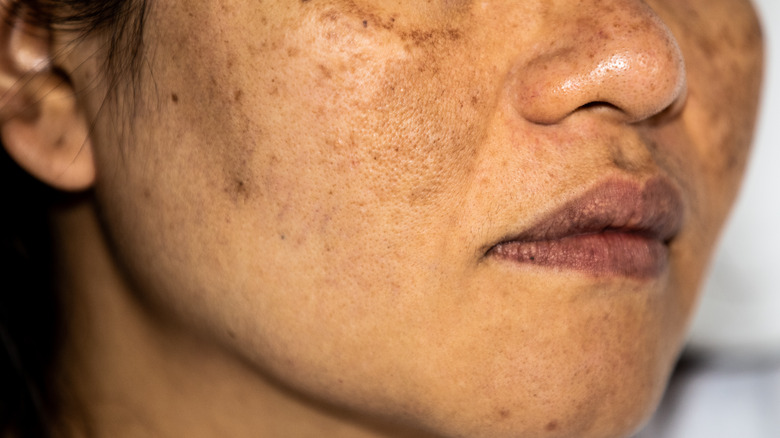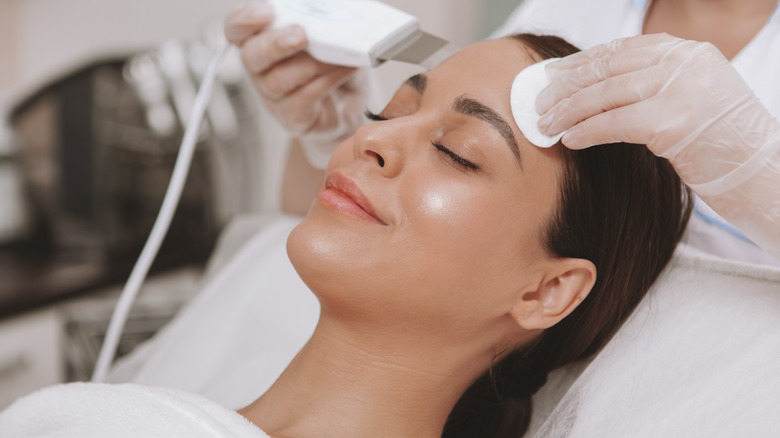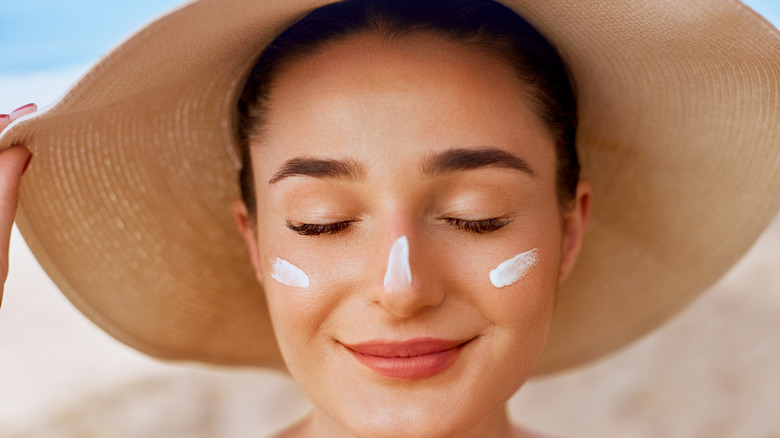Here's How To Treat Hyperpigmentation Once And For All
The dark skin that can form on your face, arms, or other parts of your body has a name. This is known as hyperpigmentation, something that is physically harmless, but can cause some mental anguish when it comes to appearance.
Hyperpigmentation occurs when there is too much melanin in certain sections of skin. Melanin is what gives skin its shade and color. There are various causes to hyperpigmentation, including sun exposure, immune disorders like lupus, and injuries that occur from cuts, burns, and swelling, according to Medical News Today. Healthline reports that this condition can appear on any part of the body, and be found in minor small patches or large areas of the skin.
Ways to avoid hyperpigmentation include avoiding the sun and not picking your skin, and that often means resisting scratching your acne (which can feel like an impossible task). However, if you can't avoid hyperpigmentation and darker spots start appearing on your skin, there are ways to treat it.
See a medical professional to address your hyperpigmentation
A dermatologist is the best person to treat hyperpigmentation, according to Allure. A medical professional can use laser treatments and chemical peels to treat the problem, and both options should absolutely be performed by an expert. Allure also noted that a dermatologist can tailor treatments to your particular case, which is always healthy for your skin and body.
Other methods dermatologists can use include microdermabrasion or dermabrasion, according to Everyday Health. While the procedures sound similar, there are differences. Healthline noted that microdermabrasion uses an abrasive instrument to correct hyperpigmentation and other skin problems like wrinkles, age spots, and acne scars. Dermabrasion uses an exfoliator for many of the same ailments and helps smooth the skin.
Once you have seen a dermatologist to get the professional help you need for your hyperpigmentation, there are also methods you can use for maintenance at home.
These are some DIY methods to help treat hyperpigmentation
You can find several different types of products that treat and prevent hyperpigmentation after you had a dermatologist do their job. Natural items that you can use to brighten the skin include licorice root, arbutin, and soy, according to Allure. Other products that help include simple and readily available vitamin C, as well as fruit enzymes that exfoliate the skin.
Of course, a little bit of prevention goes a long way, so use sunscreen with an SPF of 30 or more if you must be out in the UV rays, as noted by Everyday Health. Zinc oxide products can also help, as they go further to protect the skin from UVA rays. Also take this as your note about tanning — sometimes that summer glow can do more damage to your skin than good. And remember, always use products that are gentle on your skin and don't cause any irritations or burning sensations. Following this advice can help control your hyperpigmentation and promote healthy skin.


